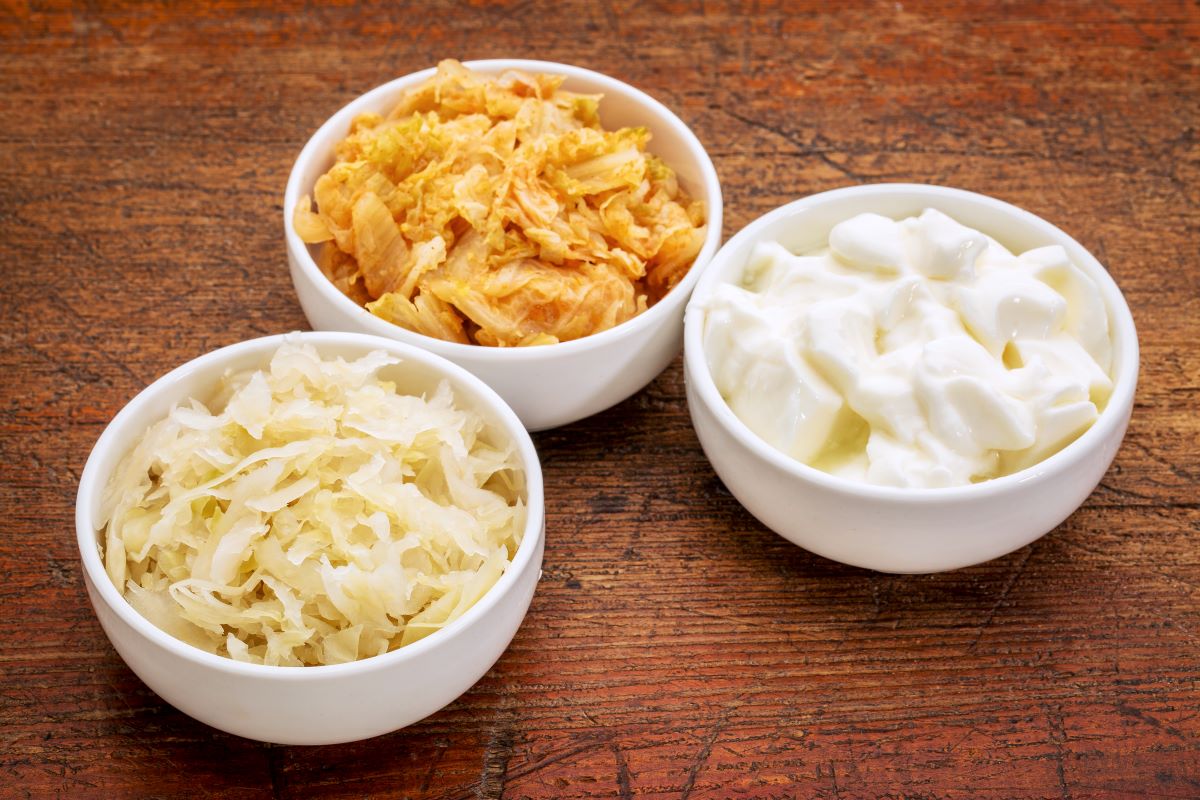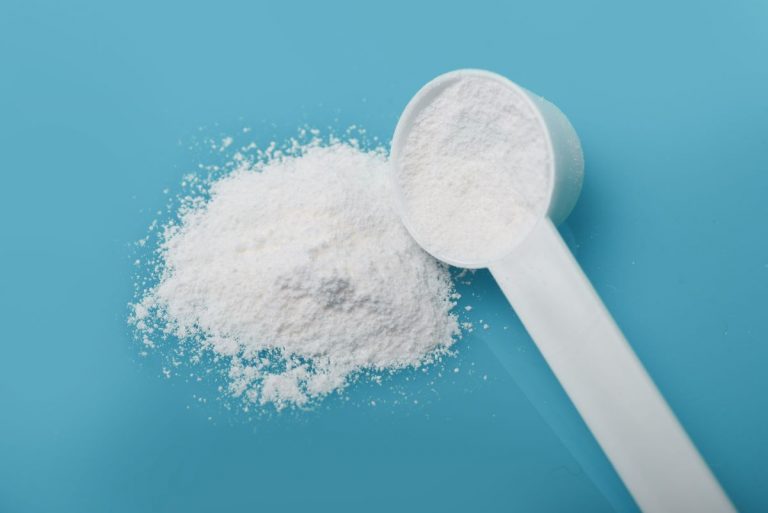Best Foods to Increase Butyrate in Your Gut Now: From a Dietitian
Maintaining a healthy gut is essential for gut-brain health. Butyrate boosting foods can increase your production of butyrate, lower overall inflammation, and optimize gut, brain, and immune health.
Wonder what foods increase your production of butyrate?
What is butyrate and how does it support your health?
This article will explain butyrate, how it affects your health, and the best foods to increase butyrate in your gut now to support a healthy you.
This information is for educational purposes only. As with any medical advice, always check with your doctor or healthcare professional for personal and age-appropriate recommendations.
Let’s get started.
Want a copy of this article? Click here to download a copy.

Table of Contents
What is Butyrate?
Butyric acid (often called butyrate) comes from the Latin root “butyrum” which means butter. It is the acid of butyrate which was originally found in butter.
Butyrate is a short-chain fatty acid (SCFA) produced by beneficial bacteria in your gut, and it plays a critical role in maintaining gut health. It is an energy source for your gut lining and regulates inflammation by maintaining a strong gut barrier. Some of the other short chain fatty acids include acetate and propionate.
What are the Benefits of Butyrate?
Health benefits of SCFA’s including butyrate are (1, 2, 3):
- Reduces inflammation (gut and more).
- Reduces risk of cancer,
- Protects the brain.
- Improves cardiovascular health.
- Regulates the immune health .
These SCFA’s are produced by fermentation of indigestible fibers and resistant starch in your diet (we will discuss these in a few minutes).
Does Butyrate Heal Leaky Gut?
Butyrate promotes gut motility and protects the barrier in your gut basically making your gut work better and keeping you healthy (4).
The benefits of butyrate to the gut-brain include (5, 6, 7):
- Reinforcing the blood brain barrier (to prevent “leaking” into the brain)
- Improving brain-derived neurotrophic factor (BDNF– a special protein that supports brain development including learning and memory)
- Increasing serotonin (the “feel good” hormone)
- Activating the vagus nerve
- Reducing inflammation
Butyrate also improves sleep (8).
That is alot for one SCFA!

What are High Butyrate Foods?
There is some butyrate in butter however, to get adequate amounts of butyrate, it is best to eat foods that increase butyrate production in the gut or take a butyrate supplement.
Here is the deal: Prebiotic fiber foods feed the probiotics in our gut which produce postbiotics such as butyrate (9, 10).
Fiber-Rich Foods
A diet rich in dietary fiber is a key component to increase your butyrate production. Fiber is a good food source for the bacteria that produce butyrate in your colon. Some fiber-rich foods to incorporate include:
- Whole Grains: Add whole grains like oats, quinoa, and brown rice into your diet which contain ample fiber to nourish your gut bacteria.
- Legumes: Beans, lentils, and chickpeas are excellent sources of both soluble and insoluble fiber, supporting the diversity of your gut microbiome.
- Fruits and Vegetables: Colorful fruits and vegetables like apples, bananas, broccoli, and spinach are rich in fiber and can increase your butyrate production.
Resistant Starch
Resistant starch is a type of carbohydrate that resists digestion in the small intestine, getting to the colon where it fuels butyrate-producing bacteria. Foods rich in resistant starch include (11):
- Green Bananas: Unripe bananas are an incredible source of resistant starch. They can be sliced and blended into smoothies.
- Legumes: In addition to their fiber content, legumes like lentils and chickpeas contain resistant starch.
The average American only eats about 5 grams of resistant starch per day vs the recommended amount of 6 grams per meal (12, 13)! Increase your resistant starch intake by incorporating more of these foods.
Some example amounts of resistant starch per 100 gm of food (14, 15):
Green banana 7.8 gm
Unripe banana 2.8 gm
Lentils 3.4 gm
Chickpeas 2.6 gm
Russet Potato, warm 3.1 gm
Cooked oats 1.0 gm
Rice, warm 1.0 gm
Eating the grains and legumes after cooling increases the amount of resistant starch. Try to get at least 25 grams of total fiber every day and remember to slowly increase your intake to prevent digestive issues.
Fermented Foods
Fermented foods contain probiotics, which can help maintain a healthy balance of gut bacteria and indirectly support butyrate production (16) Consider adding some fermented foods to your diet:
- Yogurt: Choose plain, unsweetened yogurt with live active cultures to increase the probiotic benefit.
- Kefir: Kefir is a fermented dairy product rich in probiotics that can be consumed as a drink or added to smoothies.
- Sauerkraut and Kimchi: These traditional fermented cabbage dishes are full of beneficial bacteria for your gut.

Dairy products like butter and ghee can also contribute to butyrate intake, however, large amounts would need to be consumed to meet your butyrate needs. These should be consumed in moderation.
If you currently have a sensitive gut, some of these foods may cause symptoms so talk to your registered dietitian nutritionist.
Polyphenol-Rich Foods
Polyphenols are compounds found in plant-based foods that can support your healthy gut and butyrate production (17, 18, 19, 20). Foods rich in polyphenols include:
- Berries: Blueberries, strawberries, and raspberries are packed with polyphenols such as anthocyanins, flavonols, and phenolic acids.
- Dark Chocolate: Choose chocolate with a high cocoa content for a polyphenol boost.
- Red grapes contain resveratrol.
- Decaffeinated green tea contains epigallocatechin gallate (EGCG).
Other Ways to Increase Butyrate
Adding foods that increase butyrate production, intermittent fasting, and good sleep are ways to increase butyrate and promote gut health (21, 22).
What Are the Best Butyrate Supplements?
Studies have found that prebiotic supplements such as inulin and fructans may be a beneficial way to increase butyrate production (23). Calcium, magnesium, and sodium butyrate supplements on the market have also demonstrated improvements in health (24, 25, 26, 27).
Final Thoughts
Optimizing your gut health involves more than just taking a supplement. A nutritious plant based high fiber diet can enhance your gut microbiome’s ability to produce butyrate.
To increase butyrate in your gut, incorporate:
- Fiber
- Resistant starch
- Fermented foods
- Polyphenol-rich foods (think colorful plant foods)
These foods support your digestive health but may also have benefits for your overall health including brain health. Try to prioritize these butyrate-boosting foods to increase your production, and your gut and brain will be happy.
Read more from my blog here.
© Amy Archer RDN, CLT, CHWC






